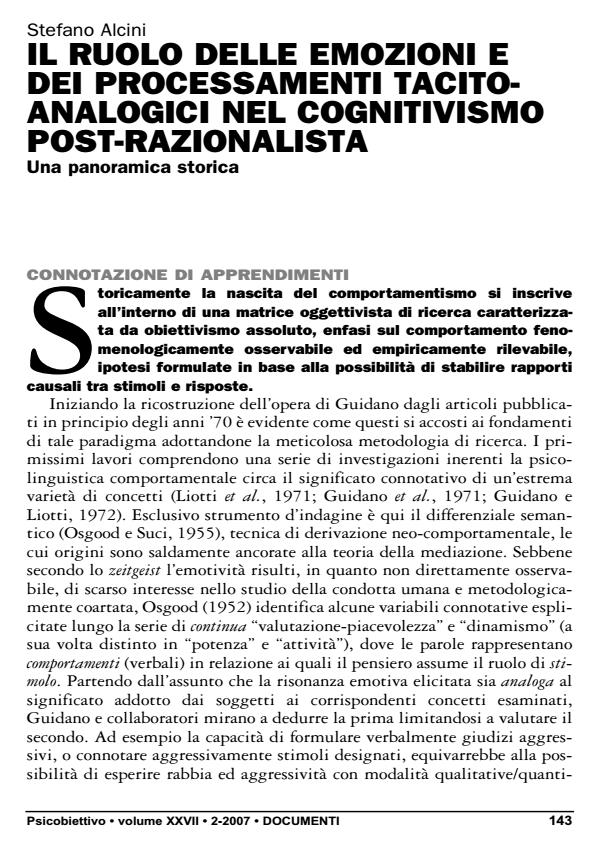Il ruolo delle emozioni e dei processamenti. Tacito-analogici nel cognitivismo post-razionalista. Una panoramica storica
Journal title PSICOBIETTIVO
Author/s Stefano Alcini
Publishing Year 2008 Issue 2007/2
Language Italian Pages 28 P. 143-170 File size 475 KB
DOI
DOI is like a bar code for intellectual property: to have more infomation
click here
Below, you can see the article first page
If you want to buy this article in PDF format, you can do it, following the instructions to buy download credits

FrancoAngeli is member of Publishers International Linking Association, Inc (PILA), a not-for-profit association which run the CrossRef service enabling links to and from online scholarly content.
There are few dimensions of the human experience that, like emotions, boast in the history of mankind knowledge such a continuity in terms of research and wide speculation. Regarding cognitive Post-rationalist approach, affectivity plays a central role either for the stability of the Self on a personological level, and the therapeutical change on a clinical one. Acknowledging affectivity as the most distinctive experiencial domain in Vittorio Guidano’s model, we’ll review the main points that made it so fondamental; a sort of critical and longitudinal journey starting from the statement: emotion (..) can’t be attacked as such, but it can only be modified through the restructuring of the belief that determines it (Guidano e Liotti, 1979, p. 90), reaches the extreme opposite: no change seems possible without emotions (...) while thinking usually changes thoughts, only feeling can change emotions (Guidano, 1991, pp. 60-61). Key Words: Emotions; Tacit Dimension; Analogical Processing; Guidano V.F.
Stefano Alcini, Il ruolo delle emozioni e dei processamenti. Tacito-analogici nel cognitivismo post-razionalista. Una panoramica storica in "PSICOBIETTIVO" 2/2007, pp 143-170, DOI: